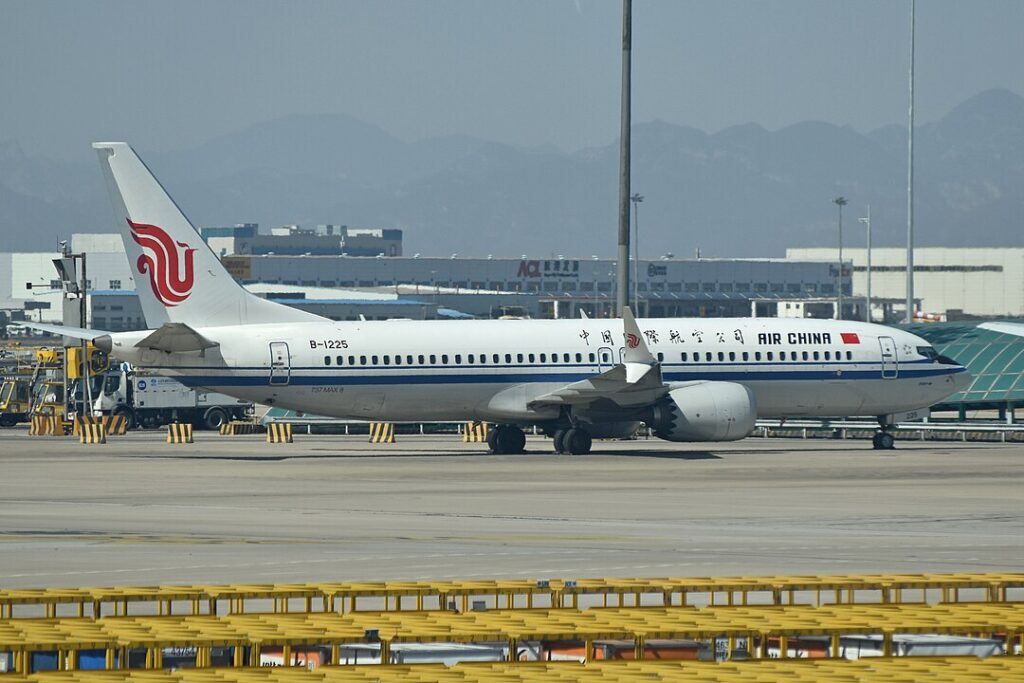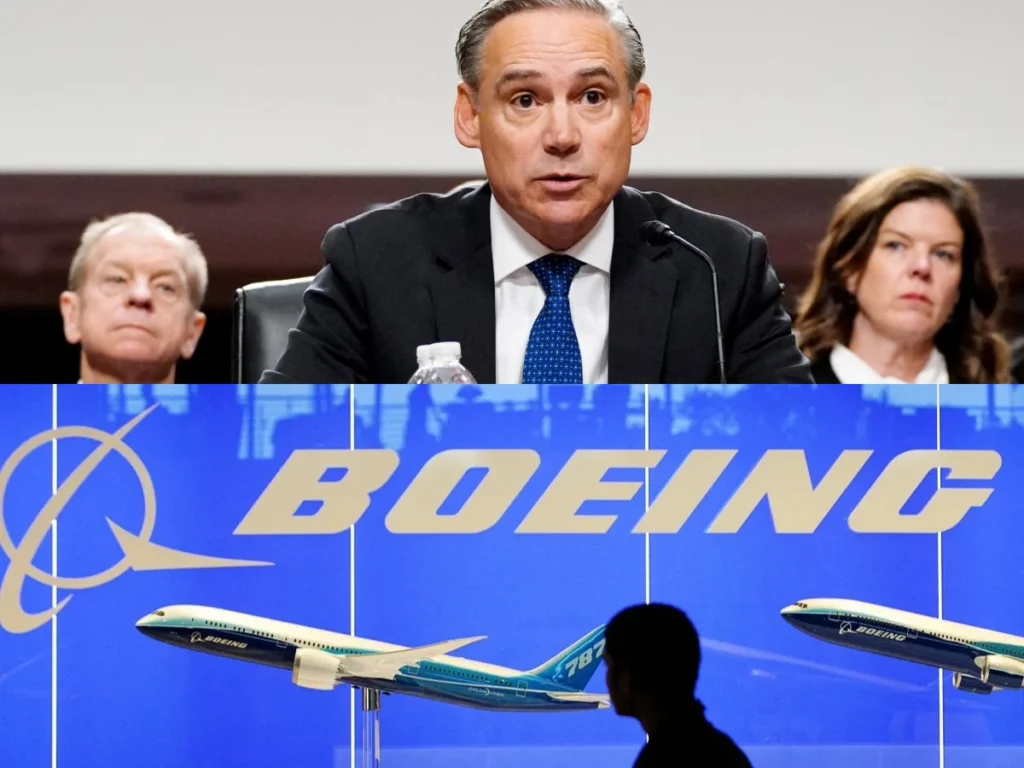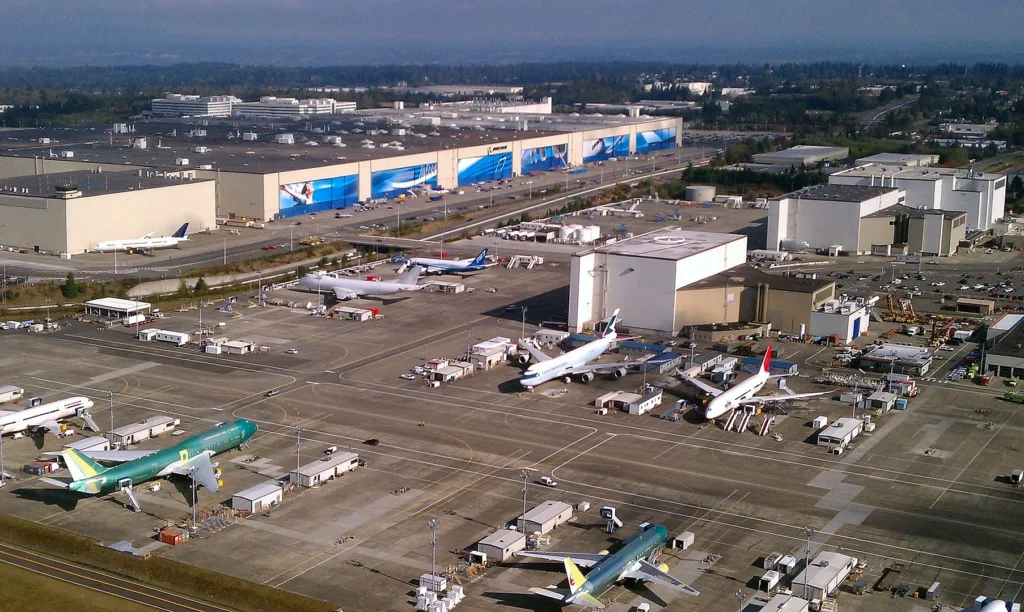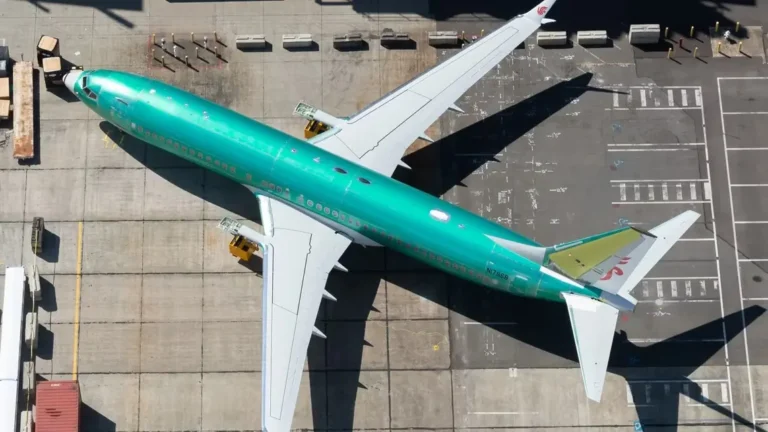SEATTLE- Boeing is actively seeking alternative customers for approximately 50 aircraft originally destined for Chinese airlines, following China’s steep retaliatory tariffs.
The aerospace manufacturer faces significant challenges as trade tensions between the United States and China continue to escalate.

Boeing 50 Undelivered Planes
As America’s largest goods exporter, Boeing has become a prime target in China’s retaliatory trade measures. Despite significant reputational challenges from recent safety scandals, the company maintains robust political connections in Washington.
Kelly Ortberg, CEO of Boeing, confirmed that Boeing has engaged with officials and politicians “up to the President himself,” referring to direct communications with President Trump.
The potential long-term exclusion from China’s rapidly growing aviation market represents a substantial strategic concern for Boeing, particularly if Airbus, which manufactures aircraft in France, China, and the United States, maintains its access to Chinese customers.
“We are not going to continue to build aeroplanes for customers who will not take them. If we see markets closing, that’s going to be a big challenge for us.”
Kelly Ortberg, CEO, Boeing

Aircraft Redirection
Two Boeing jets have already returned to the United States from China, with a third en route, after China imposed 125% tariffs on American imports.
These measures came in direct response to the White House’s earlier 145% tariff on Chinese goods, creating what Boeing CEO Kelly Ortberg described as an “unfortunate situation” during a call with investors on Wednesday.
Ortberg expressed hope for an eventual resolution to the tariff standoff, noting that both Boeing and its main competitor, Airbus, would prefer operating in a “non-tariff environment.” This position contrasts sharply with President Trump’s belief that tariffs will strengthen American manufacturing globally, a view that contradicts mainstream economic consensus.
Production Impact
Boeing has already begun production on 41 aircraft initially intended for Chinese customers, with plans to deliver an additional 9 by year’s end. The affected airlines in China have communicated their unwillingness to take delivery under current conditions.
“Many of our customers in China have indicated they are not taking delivery,” Ortberg stated during the investor call, adding that the company has received queries from non-Chinese airlines interested in acquiring some of these planes. Boeing’s strategy involves “re-marketing” these aircraft, including repainting them with different airlines’ liveries if necessary.

Financial Performance
The company announced narrowed losses for the first quarter of 2025, reporting a $31 million deficit compared to $355 million during the same period last year. This improved financial performance, coupled with Boeing’s substantial backlog of 5,600 aircraft on order globally, contributed to a 5.7% rise in the company’s share price on Wednesday.
Ortberg emphasised that overall demand for aircraft remains strong despite the trade tensions, allowing Boeing to proceed with plans to increase production of its bestselling 737 Max to 38 units monthly.

Navigating Global Trade
While Trump’s administration has imposed 10% tariffs on imports from most countries outside China, Boeing typically can recover these costs on exports. However, China’s specific retaliatory measures have created unavoidable complications for the aircraft manufacturer.
The continuing trade tensions place Boeing in a difficult position, balancing production schedules, customer relationships, and geopolitical realities while attempting to maintain its competitive position in the global aviation market.
Stay tuned with us. Further, follow us on social media for the latest updates.
Join us on Telegram Group for the Latest Aviation Updates. Subsequently, follow us on Google News

